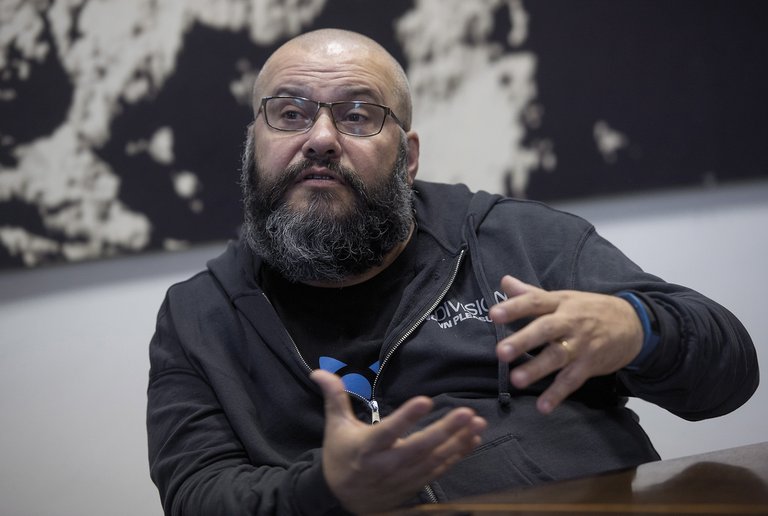“We have to recover the social value of science”
Javier Armentia Fructuoso (Vitoria, 1962) is an astrophysicist and has been director of the Planetarium of Pamplona since its foundation (1990) until the autumn of this year, so it is not surprising that many consider it the soul of the Naturopathic. But it is also much more Armentia: teacher, divulgator, collaborator in the media, promoter of initiatives for the socialization of science, defender of the collectives who suffer discrimination in the scientific field and claim their rights… It is therefore clear that, although she does not continue to work in the Counterfeitonetarium, she will not get bored. Elhuyar magazine, for its part, has been given an excuse to ask for testimony, and has responded generously to the questions.

What has surprised, agitated or astonished you most since you started working?
I can say a lot, but I don't want to complicate the work. To choose one, I'm clear what it is, it still fascinates me and amazes me: the evidence of the acceleration of the universe. In 1998, a group of astrophysicists who were observing supernovas far away revealed that the universe was expanding more and more rapidly. This disrupted all the previous hypotheses about the evolution of the Universe.
I started working on these accounts in 1980, and then there was cosmic inflation over time. According to him, the Universe expanded rapidly and forcefully in the early years and, after that, continued to expand steadily. It was discussed whether the universe would extend and scatter to infinity or reach a limit and begin to meet until the Big Crunch.
Knowing that the universe is expanding faster and faster was a terrible thing. But cosmology has it! In other areas they may be resigned, but we have continued to observe and have identified some phenomena that help us understand what we know about the Universe.
What revolution or discovery would you like to witness?
What I would like is for science to have its role and its place in society. Let science be a tool to help us solve our problems; to contribute, of course, to the climate and the environment, but also to social inequalities, to inclusion… and it is urgent. But I get the impression that science, more or less, has often played the role of an imbecile brother of capitalism. Many scientists have said: “No, I don’t get into these problems, I do research.” But this attitude means being complicit.
From the outset, science has focused on the free circulation of ideas and peer review. But look, what we've become: we now have a private system that moves a lot of money and has become a prisoner of editorials. And I also have to publish articles and improve my impact index. In Astrophysics, fortunately, free item warehouses and free software have always been common, and observational data become public after a period of time.
For a long time, scientists have shared their discoveries with other peers, by letter, etc. And that's been lost. We have to reclaim the social value of science.
Buletina
Bidali zure helbide elektronikoa eta jaso asteroko buletina zure sarrera-ontzian








